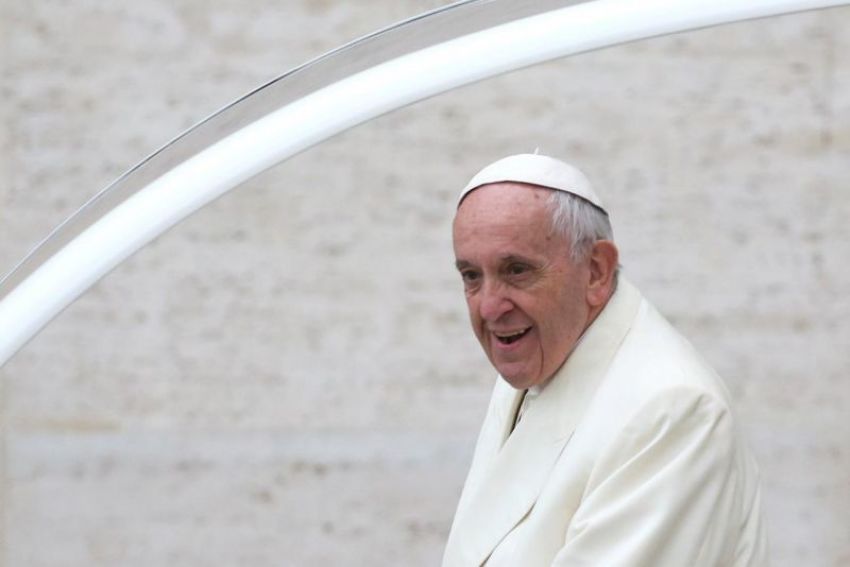Catholics criticize Pope Francis’ latest encyclical as 'political document with a religious veneer’

Many prominent American Catholics and publications have criticized Pope Francis’ latest encyclical, Fratelli Tutti, describing the document as “pregnant with socio-political concerns” and a “political document with a religious veneer.”
In the encyclical, signed Saturday on St. Francis’ tomb in Assisi, Italy, Pope Francis shares his beliefs on fraternity and social friendship. He stressed that “the following pages do not claim to offer a complete teaching on fraternal love, but rather to consider its universal scope, its openness to every man and woman.”
Throughout Fratelli Tutti, the Italian translation of the phrase “brothers all,” Francis expressed support for the idea of “universal fraternity” by speaking in favor of the integration of Europe and “generating a better world for the whole human family.” He slammed “radical individualism” as a “virus that is extremely difficult to eliminate” and indicated concern about the “regression” into “a myopic, extremist, resentful and aggressive nationalism.”
Francis also criticized free-market capitalism as a “dogma of neoliberal faith” and asserted that “the Christian tradition has never recognized the right to private property as absolute or inviolable.” He reiterated his staunch opposition to the death penalty and dismissed the notion of a “just war.”
Catholic author Eric Sammons wrote a blog post in response to the encyclical on Monday. “This is not a religious document, but instead a political document with a religious veneer,” he said. “Although Fratelli Tutti does include a chapter on the parable of the Good Samaritan, this is included mostly to support the pope’s political advice throughout the encyclical.”
While Sammons acknowledged that many previous encyclicals “have in the past often addressed current political issues,” he claimed that previous political statements made by popes were designed to “clearly re-affirm certain Catholic moral teachings and then encourage the laity to apply these teachings to the political realm.”
“This document seems the reverse: affirm certain political views, then apply some religious language to support those views," Sammons argued.
He also took issue with Francis’ lack of specificity when addressing certain political topics. For example, Francis proclaimed that “in some host countries, migration causes fear and alarm, often fomented and exploited for political purposes.” Sammons cited that passage as one of many “straw man” arguments used in the encyclical, where the pontiff elects to use the word “some” instead of citing specific examples.
He expanded on his criticism of Fratelli Tutti in an interview with The Washington Times, explaining that Francis “gives specific policy advice in areas best left to the laity to determine the prudent course of action.”
Sammons, along with the website ChurchMilitant, took issue with Pope Francis’ declaration that St. Francis “did not wage a war of words aimed at imposing doctrines” but instead “inspired the vision of a fraternal society.” The characterization of St. Francis as a “modern ecumenist, with no desire to convert others” was “simply untrue," Sammons further contended.
“St. Francis went to the Holy Land with one purpose: to convert Muslims,” he explained. ChurchMilitant, which is frequently critical of Pope Francis, described the encyclical as “pregnant with socio-political concerns” and took issue with the lack of mention of “salvation.”
John-Henry Westen, co-founder and editor of the Catholic pro-life website LifeSiteNews.com, alleged that Fratelli Tutti featured “a steady drumbeat of socialist talking points which seem more like catchphrases from the Democrat playbook than statements worthy of the Vicar of Christ.” He also criticized the document for its failure to mention the issue of abortion.
Fratelli Tutti is the third encyclical released by Pope Francis since he became pontiff in early 2013. His first encyclical was drafted by his predecessor, Pope Emeritus Benedict XVI, but finished by Francis, making it the first encyclical to be written by two popes. Francis’ second encyclical, published in 2015, focused extensively on the issue of climate change.



























